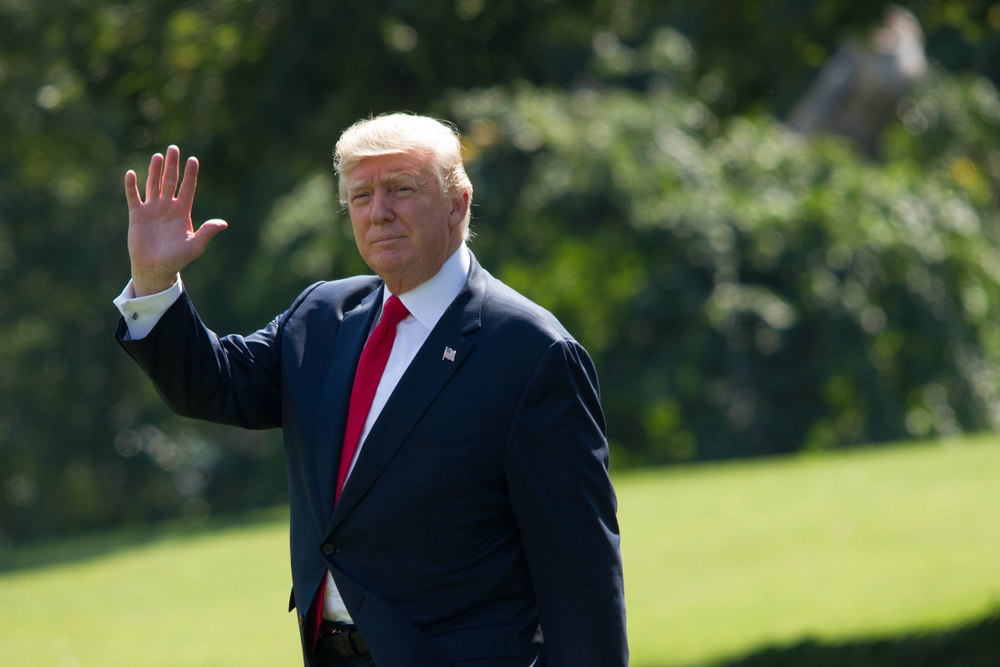Low prices, competition, and inflammatory rhetoric have joined forces.

The Trump administration announced a partial trade deal with China in January, hoping to end a trade war that has hurt American farmers. But since then, news has generally indicated that China will not come anywhere near to buying the amount of American agricultural goods President Donald Trump said they would. Over the past few days, rhetoric over Hong Kong has made that even less likely.
The “Phase One” plan of the new trade deal, according to the Trump administration, would result in $36.5 billion worth of agricultural goods exported to China in the calendar year 2020, and $50 billion in each of the two years after that. Those figures were generally viewed by economists as optimistic, probably unrealistically so; that 2020 figure would have been $12.5 billion over even pre-trade-war numbers.
While there certainly was an increase in Chinese imports of American agricultural goods following that announcement, it has been nowhere near those promised levels—and remember that Trump told farmers to buy “more land” and “bigger tractors” to prepare for huge sales to China. In late February, the USDA’s chief economist predicted $14 billion in 2020 sales to China. And things have only gotten worse since then.
Late last week, new data from the USDA, reported by Bloomberg, shows that China purchased only $3.35 billion worth of American agricultural goods in the first quarter of 2020, which is supposed to be one of the biggest purchasing quarters for soybeans. That’s not only way behind the pace these purchases would need to be at to fulfill the “Phase One” goal; it’s the lowest first quarter in 13 years.
There are several causes for the lack of exports to China. One, of course, being that everything is screwed up thanks to COVID-19. But prices are also quite low compared with the past decade or so, and increased (very cheap) competition from Brazil has made exports harder.
But things only got worse from there. On Monday, Reuters reported that China asked state-owned firms to stop purchasing soybeans and pork from the United States; China is by far the US’s largest soybean importer, and its second-largest pork importer, after Mexico. China has also threatened to further halt purchases of American agricultural goods.
This time, it’s because Trump, on Friday, said that the United States would begin to strip the various special privileges that Hong Kong has. A 1992 act, which has been in place ever since, views Hong Kong as an autonomous region, with different regulations than the US-China relationship. Those include an extradition treaty, exemptions from tariffs, freer travel between countries, and more.
The Trump administration essentially said that China’s recent crackdowns on Hong Kong mean that the island is no longer separate enough from mainland to warrant these different international rules. In effect, it means that the US will impose the same draconian rules on Hong Kong as it does on the rest of China, including tariffs on Hong-Kong-made goods—which is a lot of goods. The US imported about $4.7 billion in Hong Kong goods in 2019, and exported over $30 billion.
China was never anywhere close to purchasing the amount of US agricultural goods that Trump said it would. And now, that looks even less likely, as China has taken steps not only to not fulfill that “Phase One” deal, but to actually put a halt to imports. This is, in addition to everything else, disastrous for American farmers, who we hope did not actually go out and buy more land or bigger tractors in preparation for Chinese exports.
Trump told farmers to buy “more land” and “bigger tractors” to prepare for huge sales to China.
I’d love to think that farmers are too rational to believe something like that – particularly given his record of truth-telling and honest forecasts, whether you voted for him or not.